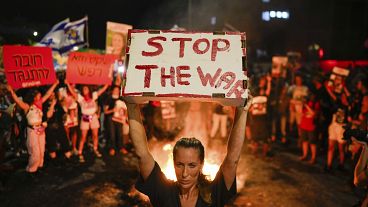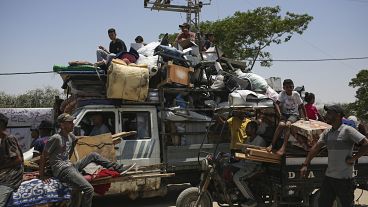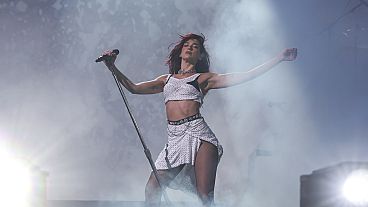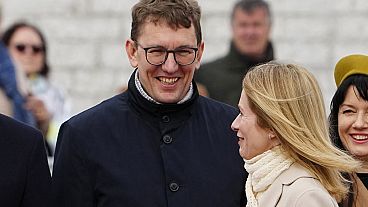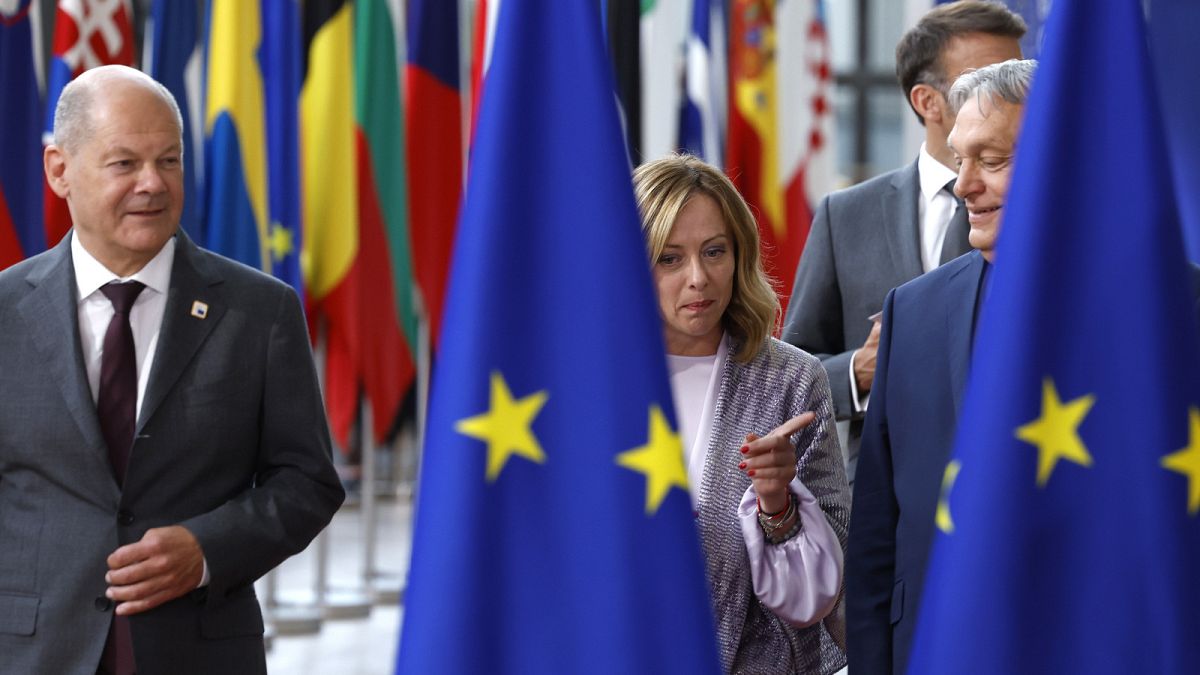The trio of candidates were approved by leaders on Thursday, although no candidate secured unanimous backing according to multiple diplomatic sources.
EU leaders have concluded talks on who should occupy key power roles in Brussels over the next five years.
The nomination of Germany's Ursula von der Leyen for the EU executive, Portugal's António Costa as president of the European Council and Kaja Kallas as foreign affairs chief were confirmed by diplomatic sources shortly before midnight on Thursday.
But two sources told Euronews that Hungary's Viktor Orbán opposed the nomination of Ursula von der Leyen and abstained on Kaja Kallas. Meloni voted against both Costa and Kallas, and abstained on the nomination of von der Leyen.
Six negotiators representing the three mainstream political forces - Poland's Donald Tusk, Greece's Kyriakos Mitsotakis, Germany's Olaf Scholz, Spain's Pedro Sánchez, France's Emmanuel Macron and the Netherlands' Mark Rutte - had pre-baked a deal on the candidates earlier this week.
It sparked the ire of Italian premier Giorgia Meloni, who lashed out at the "undemocratic" process on the eve of the summit. Diplomatic sources say Meloni could seek concessions from EU leaders in exchange for her support, such as a privileged portfolio for the next Italian EU Commissioner.
The appointment to the top jobs does not require the unanimous backing of member states, but Italy's backing was considered necessary to give a show of political unity.
Earlier on Thursday, the bloc struck a security agreement with Ukraine and held discussions on military support for Ukraine, the vision for the next five-year mandate, the Middle East, migration, and the EU's defence and security.

